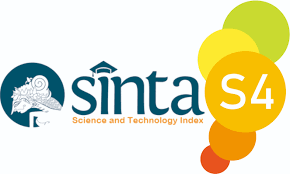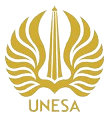Readiness of the Religious Affairs Office, Sambeng District, Lamongan Regency to Manage Dynamic Archives: What are the Implications for Office Management?
DOI:
https://doi.org/10.26740/joaep.v4n2.p96-106Keywords:
Readiness, Dynamic Archives management, Office ManagementAbstract
Ineffective archive management affects employee performance, emphasizing the need for proper facilities and skills. This study examines archive management practices, challenges, and solutions at the Religious Affairs Office, Sambeng District, Lamongan Regency. This study used descriptive qualitative approach. Subjects were two administrative staff and one general functional staff member. Data were collected through semi-structured interviews, observation, and documentation. Data were analyzed using data reduction, data presentation, and drawing conclusions using data validation techniques in the form of triangulation. Data showed that the archives management at the Sambeng District Religious Affairs Office could have been more optimal, because there was no recording of incoming letters in the agenda book. There are no archivists, so all employees have the task of managing archives. There were obstacles in carrying out administrative activities because the storage process was carried out by different people, resulting in difficulties when rediscovering archives. Infrequent shrinkage results in documents piling up, resulting in inadequate storage space. However, the employees consistently serve the community well and as fully as possible. Apart from that, employees also try to overcome the obstacles to create more optimal service, namely public satisfaction with the services provided.
Downloads
References
Airlangga, S. P., Faisal, T., & Nugraha, M. C. R. (2018). Archival Management at the University of Lampung. FIAT JUSTISIA:Jurnal Ilmu Hukum, 12(4), 298. https://doi.org/10.25041/fiatjustisia.v12no4.1371
Amsyah, Z. (1991). Manajemen Kearsipan (cetakan ke). PT Gramedia Pustaka Utama.
Andayani, S. (2018). Archive Management At Balai Arsip and Tsunami Aceh. Jurnal Ilmu Informasi, Perpustakaan, Dan Kearsipan, 20(1), 1–6.
Buang, M. (2019). Sistem Pengolahan arsip di kantor kecamatan Ilir Timur III Palembang. IQRA`: Jurnal Ilmu Perpustakaan Dan Informasi (e-Journal), 13(1), 30. https://doi.org/10.30829/iqra.v13i1.4359
Engelman, A., Enkvist, C., & Pettersson, K. (2019). A FAIR archive based on the CERIF model. Procedia Computer Science, 146(2018), 190–200. https://doi.org/10.1016/j.procs.2019.01.076
Erliyana, E., & Rozanti, D. W. (2019). Preventive and Curative Efforts in Archive Management Planning for the Threat of Natural Disasters in Indonesia. Record and Library Journal, 5(1), 1–11. https://doi.org/10.20473/rlj.V5-I1.2019.1-11
Febriyanti, N., Romiati, M., Trimonita, M., Aziaman, C. F., & Oktafiremi, L. (2019). Pengelolaan Arsip Dinamis Di Dinas Kearsipan Provinsi Sumatera Selatan. Iqra`, 13(01), 12–30. https://doi.org/http://dx.doi.org/10.30829/iqra.v13i1.4360
Gie, T. L. (2012). Administrasi Perkantoran Modern (cetakan ke). Liberty Yogyakarta.
Harsini, H., & Nasution, S. R. (2017). Pengelolaan Arsip Pada Aparatur Kelurahan Muara Fajar Barat Kecamatan Rumbai Kota Pekanbaru. In Dinamisia : Jurnal Pengabdian Kepada Masyarakat (Vol. 1, Issue 1, pp. 152–155). https://doi.org/10.31849/dinamisia.v1i1.432
Huaiming, Y. (2017). Analyses of Physical Archives Management. Advances in Computer Science Research, 73(Icemc), 926–929. https://doi.org/10.2991/icemc-17.2017.188
Irwani, I., & Ika, I. (2017). Pengelolaan Arsip Dinamis pada Dinas Perpustakaan dan Kearsipan Kota Palangka Raya. Restorica: Jurnal Ilmiah Ilmu Administrasi Negara Dan Ilmu Komunikasi, 3(2), 38–43. https://doi.org/10.33084/restorica.v3i2.734
Junawan, H. (2020). Analisis Pengeloaan Arsip di Perpustakaan Universitas Islam Negeri Sunan Kalijaga Yogyakarta. Ilmu Informasi Perpustakaan Dan Kearsipan, 9(1), 37. https://doi.org/10.24036/111392-0934
Kuswantoro, A. (2017). Pengelolaan Arsip Dinamis Dalam Upaya Pelayanan Prima Bagi Tenaga Kependidikan Pascasarjana UNNES. Jurnal Pengabdian Kepada Masyarakat, 23(2), 279–286. https://doi.org/https://doi.org/10.24114/jpkm.v23i2.6877
Muhidin, sambas A. (2019). Teori dan Praktik Sistem Kearsipan. Cv.Pustaka Setia.
Oweru, P. J., & Mnjama, N. (2016). Archival Preservation Practices At the Records and Archives Management Department in Tanzania. Mousaion: South African Journal of Information Studies, 32(3), 136–165. https://doi.org/10.25159/0027-2639/1680
Ramdani, Libriani, O., Julita, R., & Kurniawan, D. (2018). Pengelolaan arsip dinamis ( surat masuk dan surat keluar ) di Universitas Indo Global Mandiri. Jurnal Iqra’, 12(02), 118–135. https://doi.org/http://dx.doi.org/10.30829/iqra.v12i2.3987
Saputra, R. (2018). Analisis Pengelolaan Arsip Di Sekretariat DPRD Kabupaten Agam. Jurnal Ecogen, 1(4), 134. https://doi.org/10.24036/jmpe.v1i1.4732
Sedarmayanti. (2018). Tata Kearsipan Dengan Memanfaatkan Teknologi Modern (revisi ket). CV. Mandar Maju.
Stuchel, D. (2020). Material Provocations in the Archives. Journal of Critical Library and Information Studies, 3(1), 1–25. https://doi.org/10.24242/jclis.v3i1.103
Sugiyono. (2019). Metode Penelitian Kuantitatif, Kualitatif, dan R&D (kedua). Alfabeta.
Suharti, Akib, H., Jamaluddin, & Thukiman, K. (2020). Analysis of Archive Management in Secondary School( A Case Study in Indonesia). International Journal of Educational Administration, Management, and Leadership, 1(1), 1–6. https://doi.org/https://doi.org/10.51629/ijeamal.v1i1.2
Wang, H. (2015). Research on Integrated Management in Book, Information and Archives. Mcei, 501–503. https://doi.org/10.2991/mcei-15.2015.130
Zulfitriani, Z., Saleh, S., & Nasrullah, M. (2019). Archives management in Pasimasunggu Timur Sub-District Office, Selayar Islands Regency. Jurnal Office, 5(2), 43. https://doi.org/10.26858/jo.v5i2.11819
Downloads
Published
How to Cite
Issue
Section
 Abstract views: 268
,
Abstract views: 268
, PDF Downloads: 55
PDF Downloads: 55











